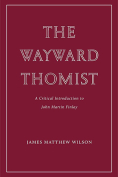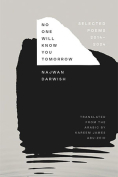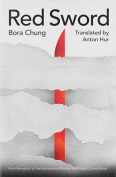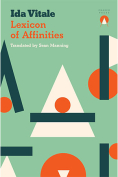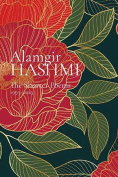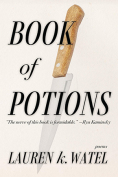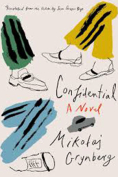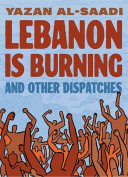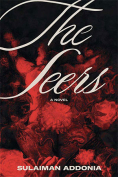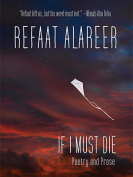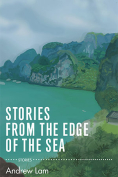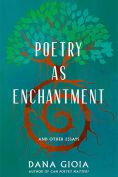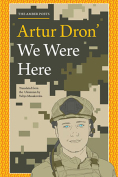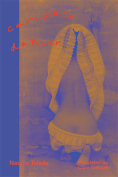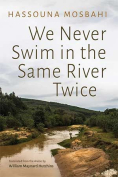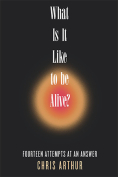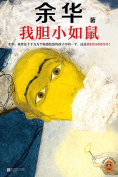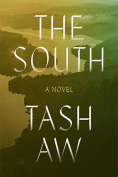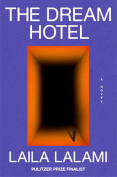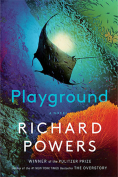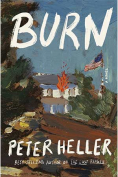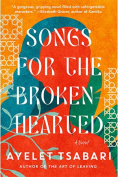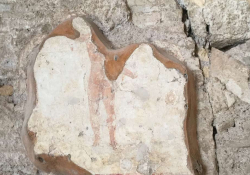Book of Potions by Lauren K. Watel
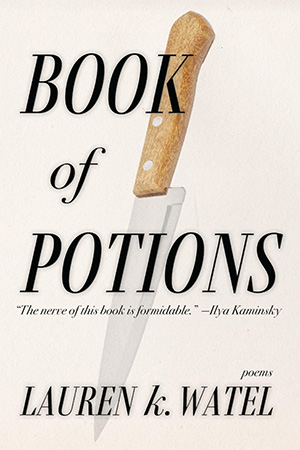
Louisville, Kentucky. Sarabande Books. 2025. 104 pages.
Readers will find an unlikely beauty in Lauren K. Watel’s debut prizewinning collection, unlikely because of its engagement with pain. Rather than an epigraph, Watel opens her book with an equation, namely “potion = poem + fiction.” Both narrative and lyrical, the potions read like spells.
Watel’s opening work, titled “I awoke on the edge,” is a melodic reckoning of a journey on foot. Half a page long, this entire spinning of words is one long sentence. What starts with a “snow-covered meadow,” a white silence, a “ravenous silence,” transforms as the snow itself becomes the silence that “sliced” through “my lips” and “swallowed up to my chest.”
The third entry takes us into a quandary of disappearance—the word “vanishing” appearing fourteen times, those three syllables haunting the poem, its universe all lit up by disappearing entities and then a wonderful moment: “how now the stars, fallen to earth like so much glitter, the stars quilting the meadows like a frost, the stars with their lights gone out. How now the sun, as big as the sky itself.”
The fourth poem sports the same title as the section itself: “No introduction needed,” where the tone is more conversational, casual with an edge, lest you get too comfortable: “say I’m middled-aged, which you can see for yourself.” In second person, the speaker addresses the reader with irony or humor, take your pick: “Say that I’m disapproving and critical, qualities I came by honestly, which you’d discover if you met my mother,” and then other qualities, “which you’d discover if you met my father. Which you won’t, because he died years ago.” A first mention of a family that will come up again—the father, especially, here—reading like a set of stills in a family album.
The language as language rarely announces itself, rarely if ever delivers a word you need a dictionary for, but that driving rhythm, those patterns of repetition do their job. An orality there, a drumbeat that pushes the reader—and shocks. The brevity and intensity of each potion offers the reader a kind of satisfaction—one settles on the one potion, ruminates on it. And while it feels like we’re reading fiction—no line breaks to stop us, that feeling of forward motion persisting, the effect feels strangely as if we’ve encountered a poem—that cumulative effect which asks the reader to stop after a half a page, or a full page, or a page and a half at the most.
Some of the phrases, each so contained within itself, send spinnerets to others, such as “In the white room,” for example, three times a title, holding space that will eventually be occupied by the father we first heard about in the fourth “potion.” In the section titled “Because the Sign Was Missing,” another journey sends us into an enchanted world: “We swam past the rope swing, past the wooden pier and the barge, past the tiny island crowned with table and chairs, past the floating dock, past the bluffs and the dam, past the canoes and kayaks, swam in that murky warmth all the way out to childhood.”
Many later poems explore fragmentation—where Watel transposes the abstract into surreal, grotesque images that pair with the palpable feeling of an inner decomposition. In the section titled “Nightfall,” she writes: “When it hits you . . . when your face is missing, peeled back from your skull-front like a lavish window display lifted from a fancy shop, you can do nothing; It’s already long gone.” Such is the enormity and complexity of suffering that haunts the entire book, a suffering that ranges from ontological to existential, from the metaphysical to the corporeal, from society to the internal, from the familial to the male/female, to the interiority of a self that can now supply her own torture:
Blame no one: . . . blame only yourself, no one was forcing you to think those thoughts, the ones that kept you up nights, the ones that made you snarl and weep and tear at your hair, the ones that put a smile on your lips, like a cat that claws the goldish out of the bowl and swallows it whole.
Watel gathers the shattered pieces of wreckage and fuses them. These potions are like objects of beauty and terror. They transport us into the particularities of a self and the impact of the world on this self. We take on this ride through another self to our own.
Geri Lipschultz
Borough of Manhattan Community College
